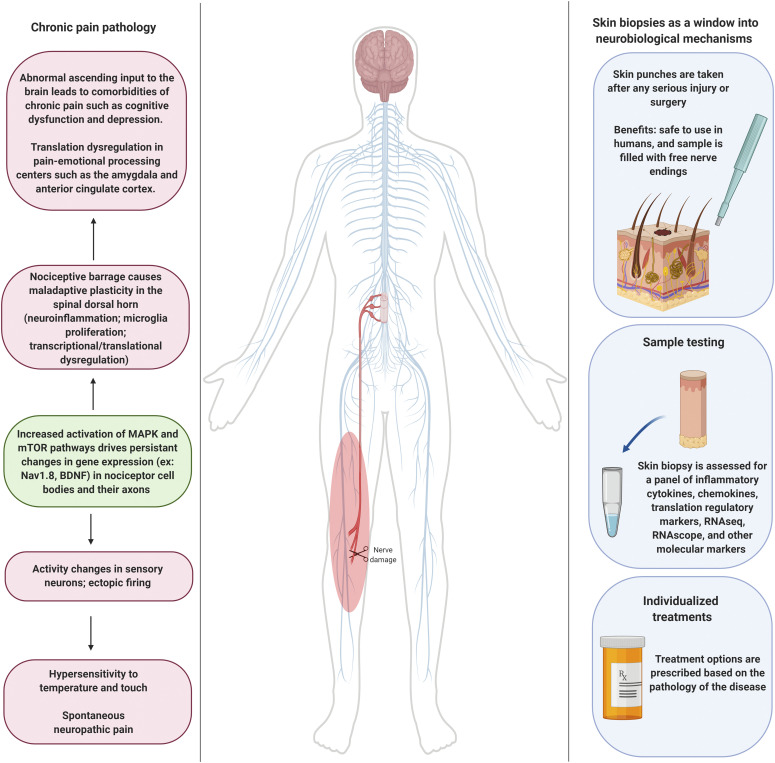Fig. 9.
Personalized treatment approaches for chronic pain. After injury and disease, translational regulation mechanisms alter protein synthesis, which forms the basis of enhanced excitability in sensory neurons and potentially also in central networks. As a result, patients with chronic pain experience evoked and spontaneous pain. Since the plasticity after injury and disease is unique to its pathology, we propose that individualized treatment avenues that specifically target the underlying pathology would best alleviate pain. To determine the course of treatment, skin biopsies can be obtained and analyzed for inflammatory mediators and translational regulators as well as sequenced for RNA profiling. Based on these personalized analyses of underlying molecular mechanisms, therapeutic development and decision making can be improved.

